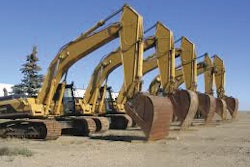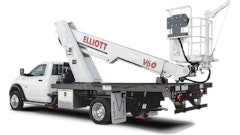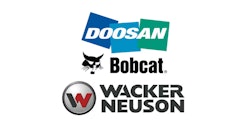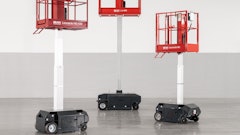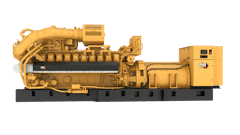As rental companies compete to offer the youngest booms, scissor lifts and telescopic forklifts, they often overlook the huge liability sitting in their yards - nonproductive used equipment. If used equipment presents a financial challenge, however, it offers an even greater opportunity. While the vast majority of the rental industry focuses on its core business - renting equipment - there is a competitive advantage for those who learn to efficiently turn their fleets over and remove depreciating equipment from their books.
All rental companies have depreciation schedules. While a maintenance-intensive 60-foot boom might last four to five years, scissor lifts can enjoy up to seven years of useful life. But what happens to this equipment once it’s no longer “young enough?” Often, maintaining and renting this equipment costs more than simply letting it sit in the yard. Rental companies might try to sell it at retail, a process that takes an average of 120 days. Meanwhile, the equipment continues to depreciate. Selling that machine in a month, however, can mean substantial reductions in cost.
Between $600 and $800 million of used equipment from the top six national rental chains alone ends up at auction each year, as companies look to turn 20 percent of their fleets annually. But are traditional auctions
the most profitable way to sell used equipment? While live auctions have been around for decades, today’s fleet managers are increasingly turning to the Internet to sell used equipment.
An international scope
While a live auction usually draws local and regional buyers, online auctions are not restricted to a geographic location and do not require face-to-face interaction. Instead, online auctions provide an international bidding audience, allowing thousands of visitors to view or bid on a piece of equipment. For those looking to sell aerial work platforms and material handling equipment, larger audiences typically generate more bids per item and ultimately a better price. Additionally, international buyers typically pay 8 to 10 percent more than their domestic counterparts. Online auctions also allow sellers to take advantage of equipment shortages in the worldwide marketplace.
For example, while domestic prices remain stable on used booms and scissor lifts, this equipment often still enjoys good prices at auction primarily because of international demand. Even used equipment experiencing a downward trend in value, such as 6,000- and 8,000-pound telescopic forklifts, could generate better price realizations online.
Some potential buyers might still be wary of purchasing over the Internet, however. Unlike live auctions, most buyers are not able to personally inspect the equipment prior to purchasing it. In the often “buyer beware” cyber world, used heavy equipment carries a large price tag. Buyers cannot afford to pay for equipment that doesn’t exist or is not in the condition listed. When purchasing equipment online, it’s important to choose a company that stands behind its equipment. Look for an auction company that offers free equipment inspections, including a visual inspection of key components, equipment-specific wear-related measurements and, when appropriate, oil/fluid samples that have been analyzed in a lab. A thorough, guaranteed analysis by a trained professional can actually yield a better overall picture of equipment condition. For the buyer, this means access to the information needed to make an informed bid, and confidence that the item is represented fairly.
Fair transactions
A different fear might sometimes exist for sellers. While buyer apprehension focuses on equipment condition, sellers want a guarantee of prompt payment. Online auction services where the buyer pays the seller directly put both parties at risk. A secure payment and equipment delivery process, however, relieves anxiety for both the buyer and seller. This transaction comprises the most significant component of online auctions. Sellers should look for an online auction company that can verify and guarantee payment, and buyers should utilize auction services that provide a secure method of transportation and delivery.
The best auction companies function as intermediaries between the buyer and seller, protecting both parties. One example might use this process: once a buyer wins an item, the buyer is required to pay the auction company directly. The auction company then notifies the seller to release the equipment. When the equipment is received by the buyer and its condition verified, the company then releases payment to the seller. In this situation, the auction company stands behind the entire process, fairly moderating the exchange.
Lower channel costs
In addition to higher price realizations, online auctions can also help cut costs for managers looking to sell equipment. Live auctions often require sellers to spend additional money cleaning up and painting equipment for auction. Sellers must also pay to transport the item to the auction, an often costly undertaking. A $20,000 aerial work platform that must travel the average distance to a live auction - 250 miles - can easily cost the seller an additional $500.
In addition, the increased frequency of online auctions really helps sellers dispose of equipment more quickly.
“Unlike on-site auctions that are typically held quarterly and are based on geography, we have the ability to conduct auctions bi-weekly - every other Thursday - and we are not limited by weather conditions,” explains Felix Rodriguez, national rental account manager at IronPlanet, a leading online auction house. “We can accelerate the velocity of equipment disposal due to our schedule.”
Commission rates comprise another cost sellers incur. Whether charging a variable or straight commission, many live auction companies average between 8 and 10 percent. A $30,000 used boom lift at 9 percent costs the seller $2,700. Without the overhead costs of a live event, online auction companies can offer lower commission rates. The same piece of equipment sold online might save the seller hundreds or even thousands in commission fees. Additionally, since equipment is listed online, Internet auctions might not require the seller to transport equipment. In this scenario, sellers retain their equipment until a buyer purchases the item and arranges to have it transported to their location. “There are no logistical obstacles,” Rodriquez says.
Convenience is key
Online auctions also provide additional convenience. Not only are participants not required to travel to the auction, they might not even need to be at their computer while the auction is in progress. While live auctions often limit bidding to the specified time an item is “on the block,” some online auction companies allow bidders to bid on the item beforehand. For bidders, this usually accomplishes two purposes. First, bidders who are unable to attend may skip the actual auction by placing a proxy bid. Having already placed their bid, they are not required to be present while the auction is in progress. Second, proxy bids can help buyers limit their bidding to a predetermined amount. For example, if a buyer proxy bids $30,000 for an aerial work platform, and the auction opens at $20,000, some online auction companies can automatically increase the bid amount to keep a bidder in the lead, until it reaches their proxy bid amount ($30,000). The computer then stops bidding and does not exceed the preset limit. For sellers, proxy bids help to generate better prices. Without the computer-generated bids on the item mentioned above, the original bidder could have won the item for $20,000.
Wise and effective asset management is vital to the success of a rental business. With large pieces of equipment costing tens or even hundreds of thousands of dollars, equipment resale value can comprise a competitive advantage. Even with items that remain productive longer, it’s important to find a reliable sales channel when equipment reaches the end of profitable use.
Information provided IronPlanet of Pleasanton, CA.




